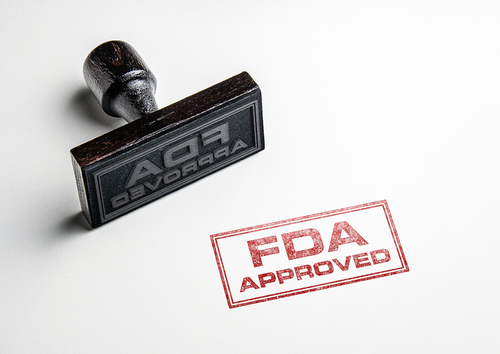The U.S. Food and Drug Administration (FDA) has approved Zejula (niraparib) as a late-line treatment for women with advanced ovarian, fallopian tube, or primary peritoneal cancer who have tumors defective in DNA repair, a status termed “homologous recombination deficiency” (HRD), and have received at least three prior courses of chemotherapy.
Zejula is an oral PARP inhibitor marketed by Tesaro, a subsidiary of GlaxoSmithKline (GSK). It works by blocking the activity of PARP enzymes, which are involved in DNA repair. By blocking the activity of these enzymes, Zejula prevents cancer cells from repairing their DNA, thereby eventually eliminating them.
The medication had previously been approved in the U.S. and Europe as a maintenance therapy for women with recurrent and high-grade serous epithelial ovarian, fallopian tube, or primary peritoneal cancer, who are responding at least partially to platinum-based chemotherapy.
The FDA has now decided to extend Zejula’s current indication to include women with HRD-positive tumors who had previously received three or more lines of chemotherapy.
HRD-positive tumors are those that either have a mutation in BRCA, a DNA repair gene, that impairs its function, or have high genomic instability (high number of genetic alterations).
This is the first time that a PARP inhibitor has been approved as a single, late-line treatment for those with HRD-positive tumors.
“This new indication reinforces our commitment to providing treatment options for more women impacted by ovarian cancer, especially those with high unmet needs. We look forward to continuing our clinical development program of Zejula and understanding its full potential as a treatment for people living with ovarian cancer,” Axel Hoos, MD, PhD, senior vice president of oncology research and development at GSK, said in news release.
The approval was based on data from the multicenter, single-arm, open-label QUADRA Phase 2 trial (NCT02354586), the largest clinical trial assessing the effectiveness of a PARP inhibitor in heavily pre-treated women with advanced ovarian cancer.
The study enrolled 98 women with advanced, HRD-positive ovarian cancer who had received three to four prior chemotherapy regimens. Patients had either BRCA mutations or high genomic instability, in which case they had responded to their last platinum-based chemotherapy regimen for more than six months.
HRD status was measured by Myriad’s myChoice CDx test, which was also approved by the FDA as a companion diagnostic to identify advanced ovarian cancer patients who are candidates for Zejula in the late-line treatment setting. Based on test results, 63 of the 98 women enrolled in the study had tumors with BRCA mutations, while the remaining 35 had tumors with high genomic instability.
All women participating in the study were treated Zejula at a daily dose of 300 mg, in cycles of 28 days, until disease progression or unacceptable toxicity.
The main goals of the study were to evaluate the percentage of women who responded to treatment, as well as the duration of their response.
Findings showed that 24% of the women participating in the trial responded to treatment. All responses observed in the trial were partial responses (partial tumor eradication) that lasted a median of 8.3 months.
Additional analyses revealed that for those whose tumors contained BRCA mutations, 39% of the women with platinum-sensitive disease, 29% of the women with platinum-resistant disease, and 19% of the women with platinum-refractory disease responded to treatment.
For those whose tumors did not contain BRCA mutations, but had high levels of genomic instability, 20% responded to Zejula.
Zejula’s safety profile was consistent with previous findings reported in the NOVA Phase 3 trial (NCT01847274), which assessed the effects of Zejula as a maintenance therapy for women with recurrent and high-grade serous epithelial ovarian, fallopian tube, or primary peritoneal cancer.
The most common treatment adverse events reported in QUADRA included low platelet counts (40%), anemia (21%), low white blood cell counts (11%), nausea (13%), vomiting (11%), fatigue (9%), and abdominal pain (5%). About 73% of the women in the trial experienced adverse reactions that required a dose reduction or treatment interruption.
“Ovarian cancer has a high rate of recurrence, so there is a real need for therapies for women whose cancer has progressed through multiple lines of treatment and who have few or no options left. It’s meaningful to see that Zejula has been approved as a late-line treatment for women including those with and without BRCA mutations,” said Kathleen Moore, lead investigator of the QUADRA study, director of the Oklahoma TSET Phase 1 Program, and associate professor at the Stephenson Cancer Center at the University of Oklahoma.
The recommended dose of Zejula is 300 mg taken once daily, with or without food. Prescribing information can be found here.

